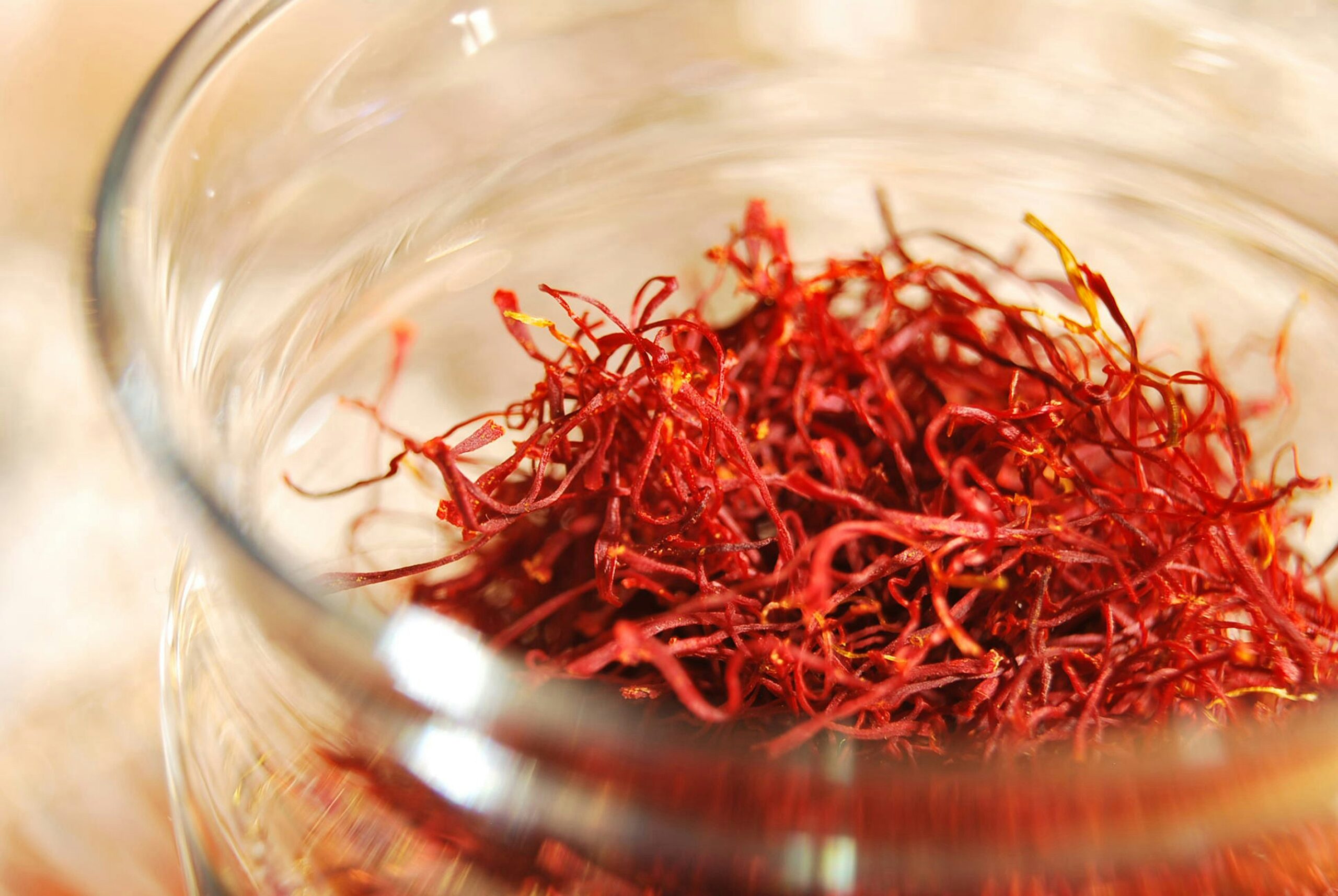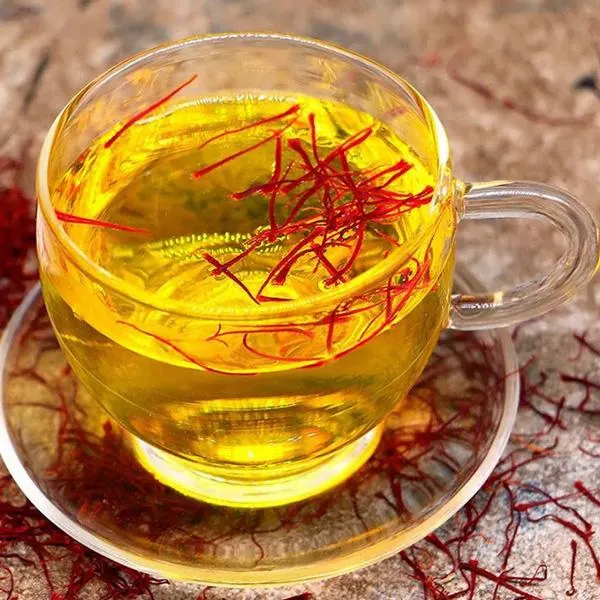
Saffron Prices in 2026: Climate Change, Reduced Harvests, and Global Market Outlook
INTRODUCTION The global saffron market is entering a critical phase. As we approach 2026, saffron prices are becoming increasingly influenced

Sometimes, the answer to our biggest health concerns lies hidden in the simplest natural ingredients.
Saffron — the vibrant, aromatic spice that holds a special place in many dishes — has now found its way into research laboratories. But this time, not for flavoring food, rather for combating a disease known as cancer.
In recent years, scientists have been closely studying the effects of saffron’s active compounds on cancer cells, and the initial results are nothing short of remarkable.
In this article by Viora Saffron, we will introduce you to six science-backed benefits of saffron in preventing various types of cancer. If you care about your health, don’t miss these next few minutes of reading.
Cancer refers to a group of diseases in which the body’s cells begin to grow and multiply abnormally and uncontrollably. These abnormal cells can invade surrounding tissues and, in some cases, spread to other parts of the body — a process known as metastasis.
The human body normally repairs or eliminates damaged cells, but in cancer, these control systems malfunction. As a result, unhealthy cells begin to grow excessively, leading to the formation of tumors or cancerous masses.
Cancers are classified into several main types, depending on the type of cell or tissue in which they develop:
These types of cancers originate from the surface or lining cells of the body, such as skin, lung, breast, and colon cancers.
This category of cancers develops in connective tissues such as bone, muscle, cartilage, and fat.
Leukemia, or blood cancer, is a type of cancer that begins in the blood cells and bone marrow, often leading to an abnormal increase in white blood cells.
These cancers affect the body’s immune system and lymph nodes.
Melanoma is a type of skin cancer that begins in the pigment-producing cells (melanocytes).
The power of saffron in cancer prevention lies in its active chemical compounds, each of which performs a specific function in the body. These compounds, in addition to giving saffron its distinctive color, taste, and aroma, have remarkable abilities to combat oxidative stress and inhibit the growth of abnormal cells. Below, we introduce the most important of these compounds:
Crocin gives saffron its yellow and red colors, but it is more than just a natural pigment. This compound has very strong antioxidant properties and has been shown in laboratory studies to prevent the proliferation of cancer cells and increase programmed cell death, or apoptosis. This process helps eliminate cancerous cells in the body.
Crosetin is a water-soluble carotenoid that plays an important role in reducing inflammation, boosting immune system function, and inhibiting tumor growth. This compound may also help improve blood circulation in damaged tissues.
Safranal is the main compound responsible for saffron’s delightful aroma. Beyond its fragrance, it possesses anti-inflammatory and anti-cancer properties and has been observed in some studies to protect cells’ DNA from damage.
Picrocrocin gives saffron its unique bitter taste. During saffron drying, it breaks down to produce safranal. In addition to its antimicrobial properties, research is ongoing into its protective effects on cells.
The active compounds in saffron act like a small army, combating free radicals, inflammation, and the proliferation of cancer cells. This is why the scientific community’s interest in this spice continues to grow.
In recent years, saffron has attracted attention not only as a colorful spice but also as a substance with medicinal properties. Numerous studies at the laboratory, animal, and human levels have shown that saffron’s active compounds, particularly crocin and safranal, can interact with biological processes involved in cancer development. In this section, we highlight the most notable scientific findings:
Laboratory studies are the most basic stage of investigating medicinal effects. In these studies, cancer cells are placed in a controlled culture environment, and saffron compounds are added to observe their effects.
A key study published in 2009 in the Journal of Medicinal Food demonstrated that crocin, the main coloring compound in saffron, could significantly inhibit the growth of lung cancer cells without harming surrounding healthy cells.
In another study, saffron extract was found to suppress the proliferation of colon, ovarian, and melanoma cancer cells, while also activating programmed cell death, or apoptosis.
Animal studies represent a more advanced stage of research, helping to assess saffron’s effects in a living organism rather than just isolated cells.
A study published in Cancer Letters reported that mice experimentally induced with liver cancer showed a significant reduction in tumor growth after receiving saffron extract. It was also observed that saffron increased the activity of antioxidant enzymes in the mice, protecting their cells from oxidative stress-related damage.
Human evidence is still in its early stages, but some findings are promising.
In a small study published in the Avicenna Journal of Phytomedicine, cancer patients who took saffron capsules experienced reduced fatigue and anxiety associated with chemotherapy, without notable side effects.
Although large-scale, controlled clinical trials are still needed to confirm saffron’s definitive role in cancer prevention or treatment in humans, these preliminary results are encouraging.
From cellular experiments to animal studies and early human trials, all evidence points to saffron’s notable anticancer potential. These effects are primarily attributed to its antioxidant, anti-inflammatory, and apoptosis-inducing properties. However, more rigorous human research is essential before saffron can be applied clinically.
Scientific studies have shown that saffron can specifically help prevent or slow the growth of some of the most common cancers. Natural compounds in saffron, such as crocin and safranal, play a significant role by inhibiting abnormal cell growth and promoting the natural death of damaged cells—a process known as apoptosis. Below, we highlight four major cancers that have shown the most positive response to saffron in scientific research.
Breast cancer is one of the most common cancers among women. In a study conducted by Iranian researchers and published in a reputable pharmaceutical journal, crocin was found to inhibit the proliferation of breast cancer cells.
Remarkably, this compound does not harm healthy cells while exerting its anticancer effects, distinguishing saffron from many conventional chemotherapy drugs.
In an animal study, mice with intestinal tumors were given saffron extract. The results showed that not only did the tumors stop growing, but in some cases, growth was completely halted.
The study also revealed that saffron reduces inflammation in the intestinal walls, protecting cells from damage and preventing dangerous precancerous changes. This research was published by Iranian scientists in a journal focused on traditional medicine.
The liver is a vital organ responsible for detoxifying the body, making it vulnerable to damage. In a study conducted at Mashhad University, researchers found that saffron can prevent oxidative damage in the liver by boosting the body’s defensive enzymes.
In this research, mice exposed to carcinogenic factors showed fewer precancerous lesions after consuming saffron extract, indicating a protective effect.
Blood cancer spreads rapidly and is often more challenging to treat than some other cancers. Laboratory studies have shown that saffron can inhibit the rapid proliferation of abnormal blood cells and induce their natural death (apoptosis).
Although more research is needed to confirm saffron’s effects on blood cancer in humans, initial results are very promising.
Overall, saffron has demonstrated significant potential in preventing or slowing the progression of several common cancers, including breast, colon, liver, and blood cancers. Its mechanisms of action include:
It is important to note that most of these studies are still at the laboratory or animal stage, and saffron should only be used as a therapeutic agent under the guidance of a qualified physician.
Despite saffron’s remarkable potential in cancer prevention and management, it is important to be aware of its limitations and exercise caution. Improper or excessive use can cause side effects, and saffron should never replace conventional medical treatments. Key points include:
Saffron is generally safe as a culinary spice in small amounts. However, consuming large quantities—more than 5 grams per day—can lead to side effects such as nausea, vomiting, dizziness, and in severe cases, serious toxicity. Extremely high doses, though rare, can be dangerous.
Although research indicates that saffron has anticancer properties, it should never replace approved medical treatments such as chemotherapy or radiotherapy. Saffron may be used as a complementary therapy alongside conventional treatments, but always under the supervision of a qualified physician.
Saffron may interact with certain medications, particularly antidepressants, blood pressure medications, and blood thinners. Therefore, before starting regular or high-dose saffron consumption, it is essential to consult with a doctor or pharmacist.
These precautions ensure that saffron can be used safely while maximizing its potential benefits.
High amounts of saffron during pregnancy may cause uterine contractions and increase the risk of miscarriage. Therefore, saffron should be used very cautiously during pregnancy and only under medical supervision.
Imitation or low-quality saffron may contain harmful substances or contaminants that can pose serious health risks. Always choose high-quality, reputable saffron, such as Viora Saffron, to ensure safety and effectiveness.
Cancer remains one of the most complex and significant health challenges worldwide, yet saffron, the natural “red gold,” plays an important role in its prevention. Scientific studies have shown that saffron can help maintain health by inhibiting cancer cell growth, reducing inflammation, and protecting against cellular damage.
However, saffron is only a natural supplement and cannot replace medical treatments. Mindful consumption under a physician’s guidance is essential to fully benefit from its properties.
Saffron not only adds a unique flavor to life but also offers hope in the fight against cancer and the preservation of our health.

INTRODUCTION The global saffron market is entering a critical phase. As we approach 2026, saffron prices are becoming increasingly influenced

Saffron is one of the most expensive spices in the world, often referred to as “red gold.” It’s no surprise
We use cookies and similar technologies to ensure the proper functioning of our website,
analyze traffic, and improve your browsing experience.
You can accept all cookies, reject non-essential cookies, or manage your preferences at any time.
Contact us
2 Responses
This article is very useful to me, thank you.
Hello, please and thank you very much for your feedback.